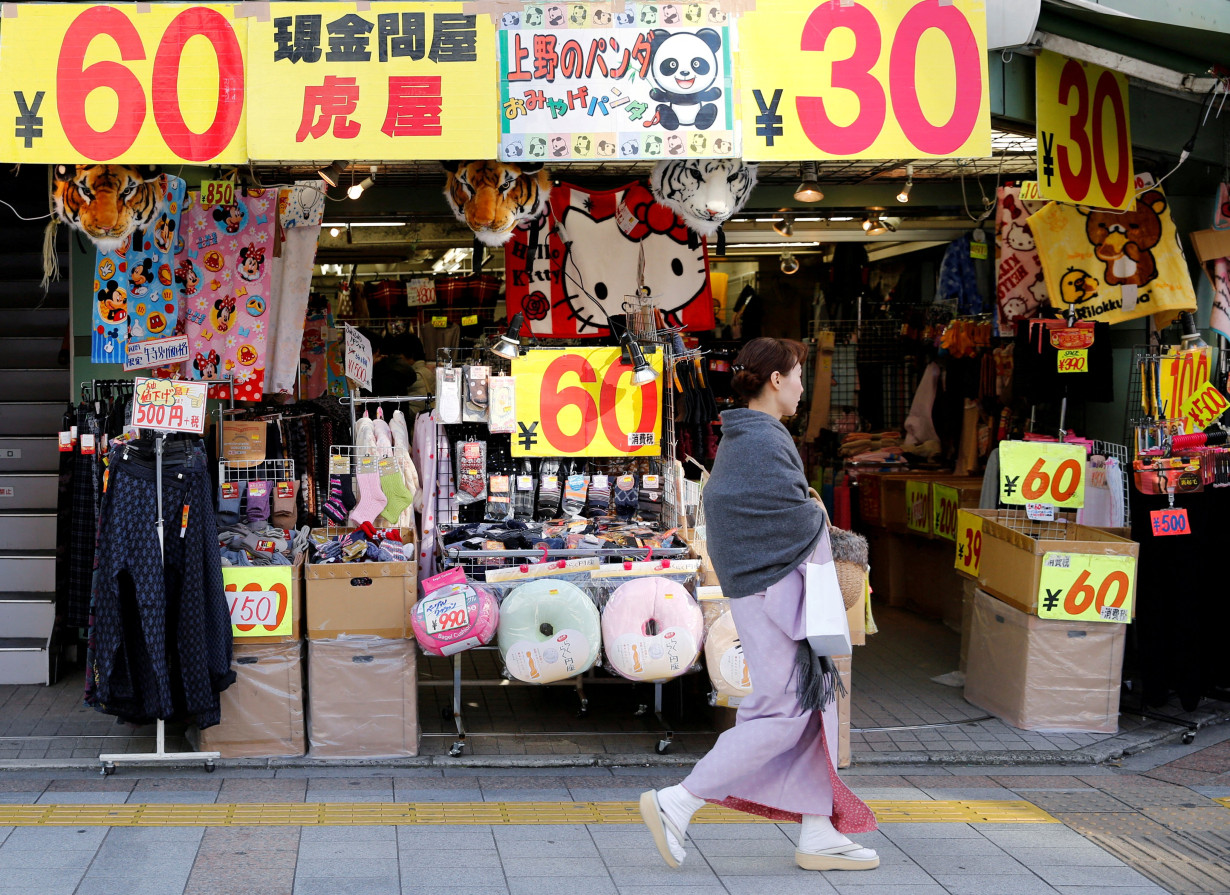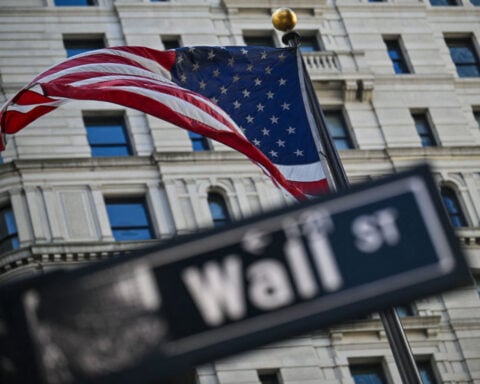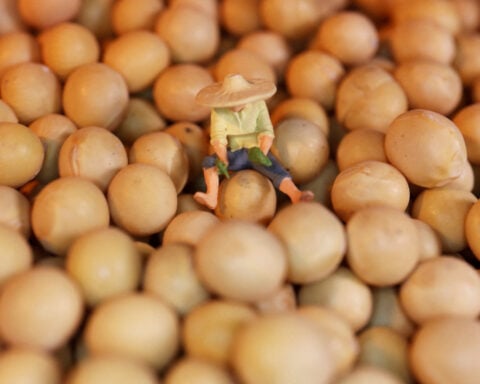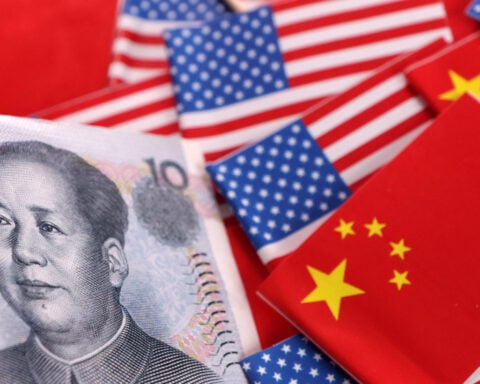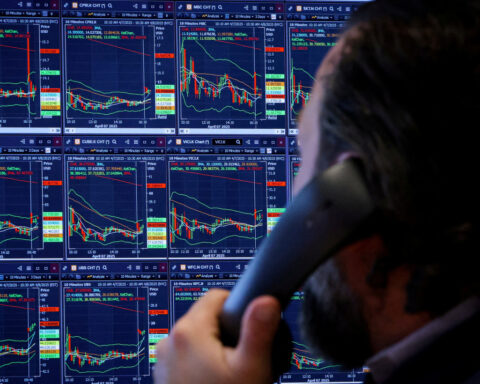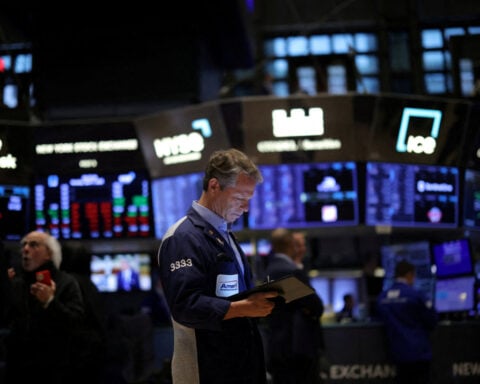By Leika Kihara
TOKYO (Reuters) -Japan's annual wholesale inflation jumped to a seven-month high of 4.2% in January and accelerated for the fifth straight month, highlighting persistent price pressures and reinforcing market bets of another interest rate hike this year.
The data came in the wake of Bank of Japan Governor Kazuo Ueda's warning on Wednesday that continued rises in food costs could affect the public's inflation expectations, underscoring the central bank's focus on upside price risks.
While analysts expect inflationary pressure from rising raw material costs to persist, some caution the hit to consumption could discourage the BOJ from raising interest rates too soon.
"While wages are rising solidly, elevated food and energy costs are weighing on consumer sentiment and delaying a pick-up in household spending," said Takeshi Minami, chief economist at Norinchukin Research Institute. "There's little reason for the BOJ to accelerate the pace of rate hikes," he said.
The rise in the corporate goods price index (CGPI), which measures the price companies charge each other for their goods and services, exceeded a median market forecast for a 4.0% increase and followed a revised 3.9% increase in December.
It was the highest annual rise since a 4.5% gain in June 2023. Agriculture goods prices soared 36.2% and food costs were up 2.9% on steady rises in the price of rice, eggs and meat.
While a phase-out of government subsidies pushed up energy costs, price rises were broad-based including those for textiles, plastic and non-ferrous metals, the data showed.
An index of yen-based import prices rose 2.3% in January from a year earlier after a revised 1.4% gain in December, the data showed, a sign the yen's weakness continued to inflate costs for companies.
IMPORTING COSTS
Import prices may rise further as hot U.S. inflation data on Wednesday led to receding market expectations of near-term U.S. interest rate cuts, lifting the dollar to a one-week high against the yen.
The dollar jumped 1.29% to 154.44 yen overnight and stood at 154.33 yen in Asia on Thursday. It was little changed after the release of Japan's wholesale price data.
Japanese government bond (JGB) yields rose across the curve with the benchmark 10-year yield briefly rising to a 15-year high of 1.37% before retreating to 1.365%, still up 2.5 basis points (bps) from Wednesday.
Analysts say rising U.S. Treasury yields and uncertainty over U.S. President Donald Trump's tariff policies are the key drivers of the uptick in Japanese yields, noting that markets have already priced in roughly a 80% chance of a BOJ rate hike in July.
Still, lingering inflationary pressure will likely keep the BOJ on track to raise interest rates a few more times in coming years, said Naomi Muguruma, chief bond strategist at Mitsubishi UFJ Morgan Stanley Securities.
"I don't think Japan is yet at a stage where the BOJ is forced to cool demand through rate hikes," Muguruma said. "But companies are likely to keep passing on rising raw material and labour costs, which means the BOJ will raise interest rates at least to levels deemed neutral to the economy," she added.
The BOJ exited a decade-long, massive stimulus programme last year and raised short-term interest rates to 0.5% in January on the view Japan was on track to sustainably meet the bank's 2% inflation target.
The central bank has signalled readiness to raise rates further if broadening wage hikes underpin consumption and allow companies to keep hiking prices not just for goods but services.
While the BOJ targets consumer, not wholesale inflation, the rise in business-to-business prices will likely push up the price households pay for goods and services with a lag.
Japan's core consumer inflation hit 3.0% in December to mark the fastest annual pace in 16 months and staying above the BOJ's 2% target for nearly three years.
A private survey released on Thursday showed most economists expect the BOJ to raise short-term rates to 0.75% in the latter half of this year, unchanged from the previous month's poll.
(Reporting by Leika Kihara; Editing by Kim Coghill and Shri Navaratnam)

 Trump has begun another trade war. Here's a timeline of how we got here
Trump has begun another trade war. Here's a timeline of how we got here
 Canada's leader laments lost friendship with US in town that sheltered stranded Americans after 9/11
Canada's leader laments lost friendship with US in town that sheltered stranded Americans after 9/11
 Chinese EV giant BYD's fourth-quarter profit leaps 73%
Chinese EV giant BYD's fourth-quarter profit leaps 73%
 You're an American in another land? Prepare to talk about the why and how of Trump 2.0
You're an American in another land? Prepare to talk about the why and how of Trump 2.0
 Chalk talk: Star power, top teams and No. 5 seeds headline the women's March Madness Sweet 16
Chalk talk: Star power, top teams and No. 5 seeds headline the women's March Madness Sweet 16
 Purdue returns to Sweet 16 with 76-62 win over McNeese in March Madness
Purdue returns to Sweet 16 with 76-62 win over McNeese in March Madness
